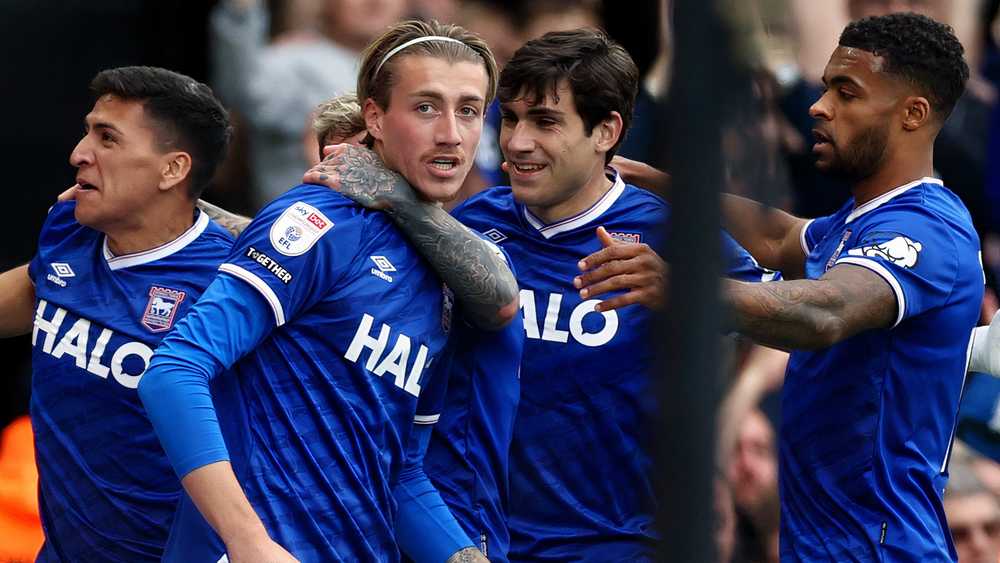Ipswich Town entered the Championship campaign as one of the bookmakers’ top picks for promotion, but things haven’t quite gone to plan so far. Like fellow relegated sides Leicester City and Southampton, the Tractor Boys have endured a stop-start beginning to life back in the second tier — collecting four wins, four draws, and three defeats from their opening twelve fixtures.
Kieran McKenna’s side did, however, return to winning ways at the weekend, edging past West Bromwich Albion 1-0 thanks to a late strike from Jack Clarke. The winger, signed from Sunderland in a £15 million deal during the summer, has taken time to rediscover his rhythm after a challenging spell in the Premier League, but he’s now starting to show why Ipswich spent big to bring him in.
Despite not being a regular starter, Clarke has been a game-changer from the bench. His explosive pace and sharp finishing have made him one of Ipswich’s most dangerous weapons in the latter stages of matches. Remarkably, four of his five league goals this season — including a crucial strike in the East Anglian derby win over Norwich City — have come as a substitute.
Currently averaging an impressive 0.92 goals per 90 minutes from just 489 minutes of league football, Clarke is joint-top scorer with Jaden Philogene. The challenge for McKenna now is figuring out how to fit both attacking talents into his lineup without upsetting the team’s balance.
McKenna’s “good problem” to solve
Speaking to Football League World, Ipswich supporter and pundit Adam Wilkin described the situation as a “real problem — but a good one.” Both Clarke and Philogene have been consistent contributors, and while fans are calling for the former to start more often, Wilkin believes the current rotation is serving the team well.
“I think that left-wing position is a real problem, but a good problem to have,” he explained. “Both Jaden Philogene and Jack Clarke are scoring regularly, and Clarke’s impact off the bench is huge. When he comes on after 60 or 70 minutes, he’s fresh and running at tired defenders — that’s when he’s at his best.”
Wilkin added that Clarke appears comfortable in his current role, embracing the ‘super-sub’ tag while waiting patiently for more starts. “There’ll be times when he’s needed from the start, especially with injuries, but for now, it’s working well. Playing both at once could limit tactical flexibility later in games, so McKenna’s approach makes sense.”
A luxury few Championship sides possess
McKenna’s dilemma is one most Championship managers would envy. In Philogene, Ipswich have one of the division’s most electrifying attackers, capable of producing moments of magic out of nothing. In Clarke, they boast a direct, clinical threat who can change games in an instant.
The pair cost a combined £35 million — part of a lavish summer outlay that also saw Ipswich sign teenage sensation Sindre Walle Egeli for a record £17.5 million. Together, they give McKenna the kind of depth and attacking quality few rivals can match.
Clarke’s speed and finishing instincts perfectly complement Philogene’s flair and creativity, and while it’s a headache for the manager to juggle minutes between them, it’s a headache most coaches would love to have.
For Ipswich, this “problem” could well prove the difference between another frustrating season — and a genuine push back toward the Premier League.
